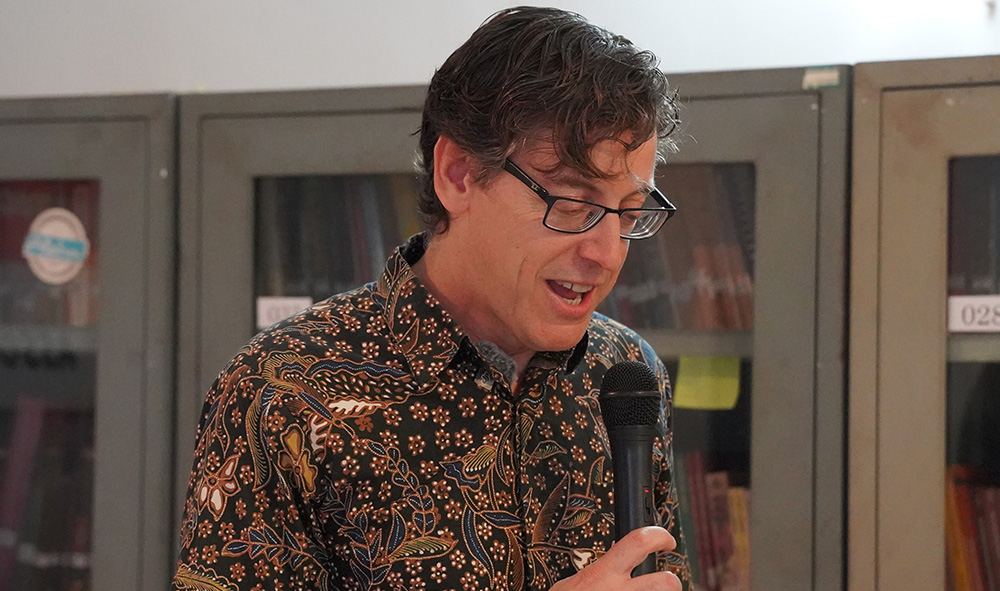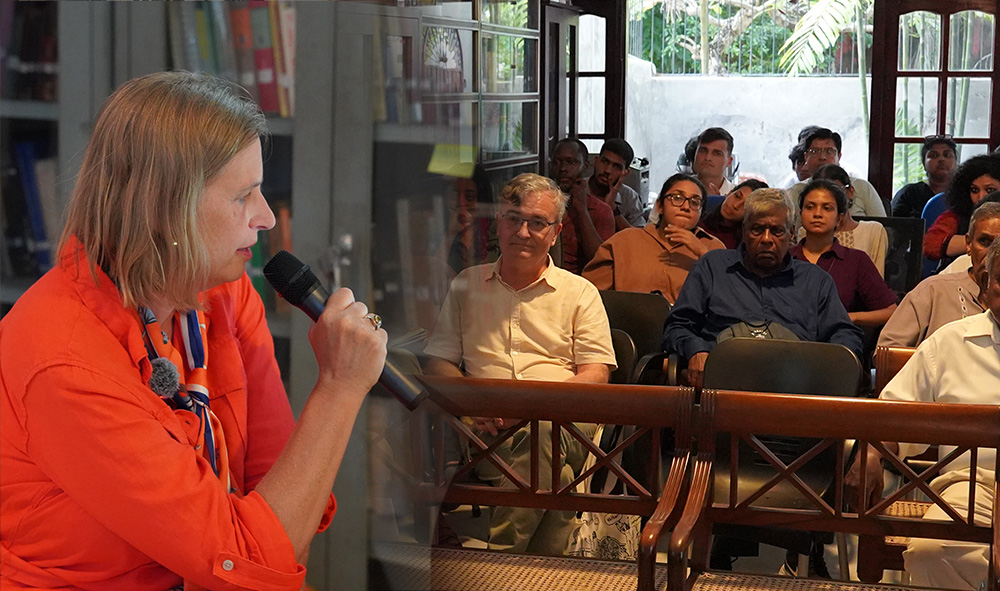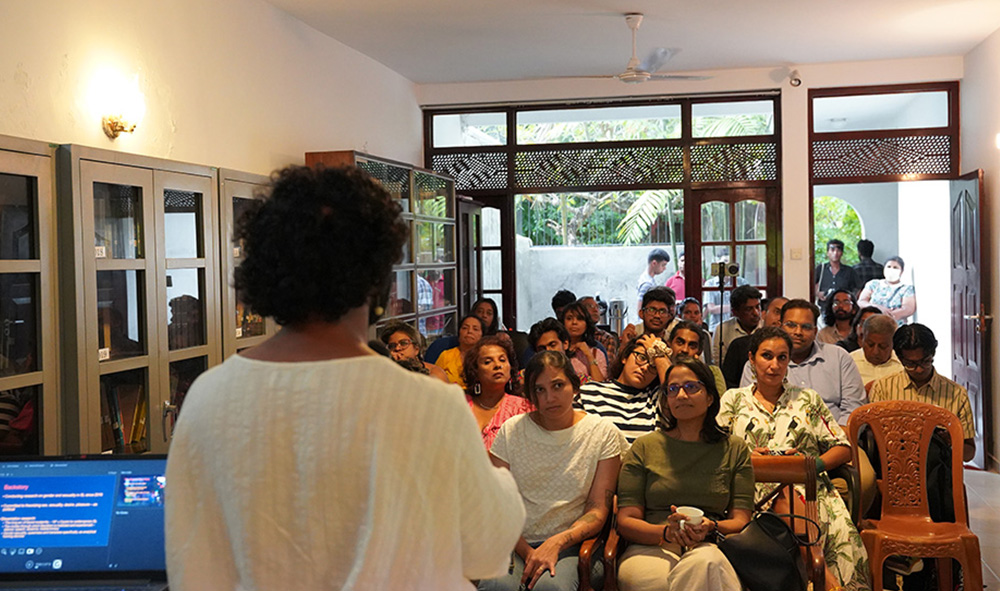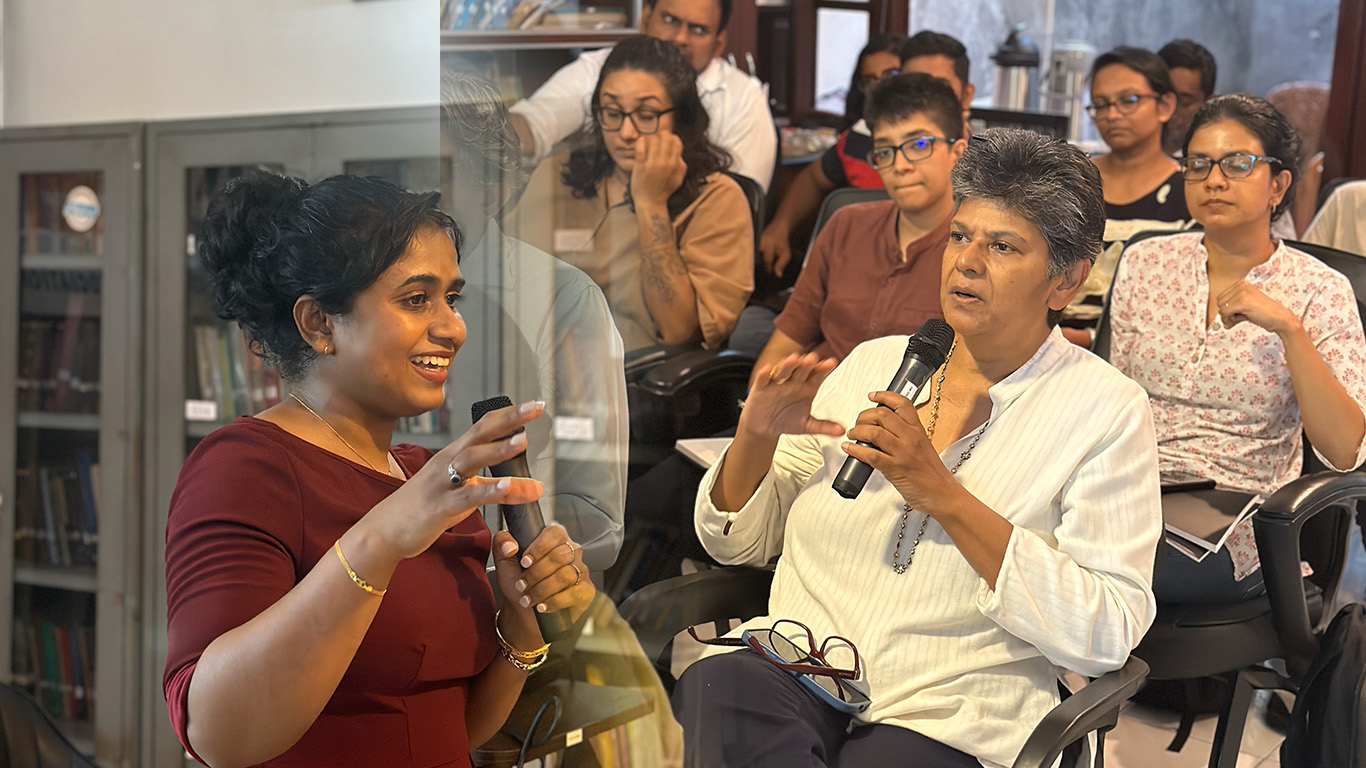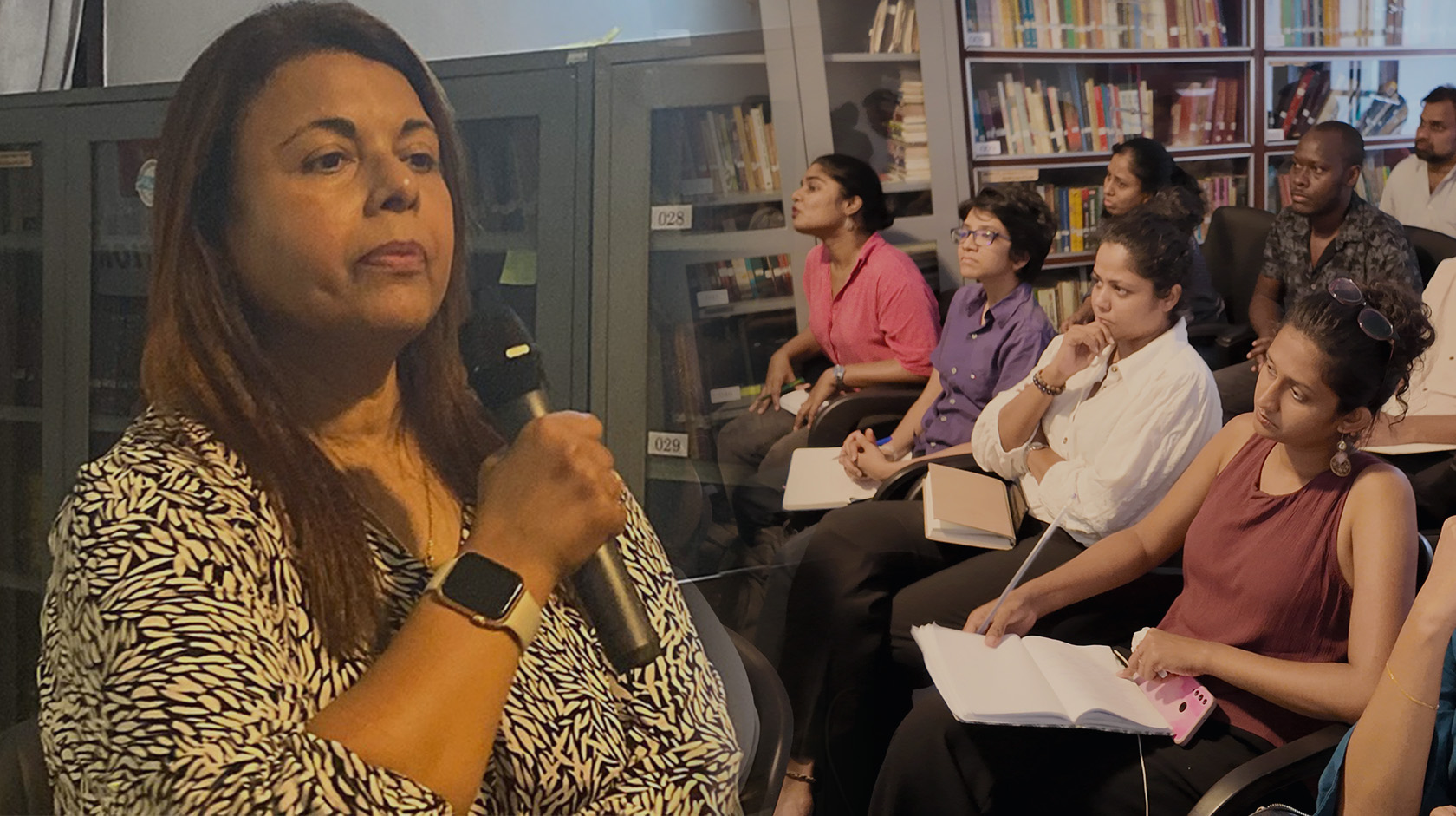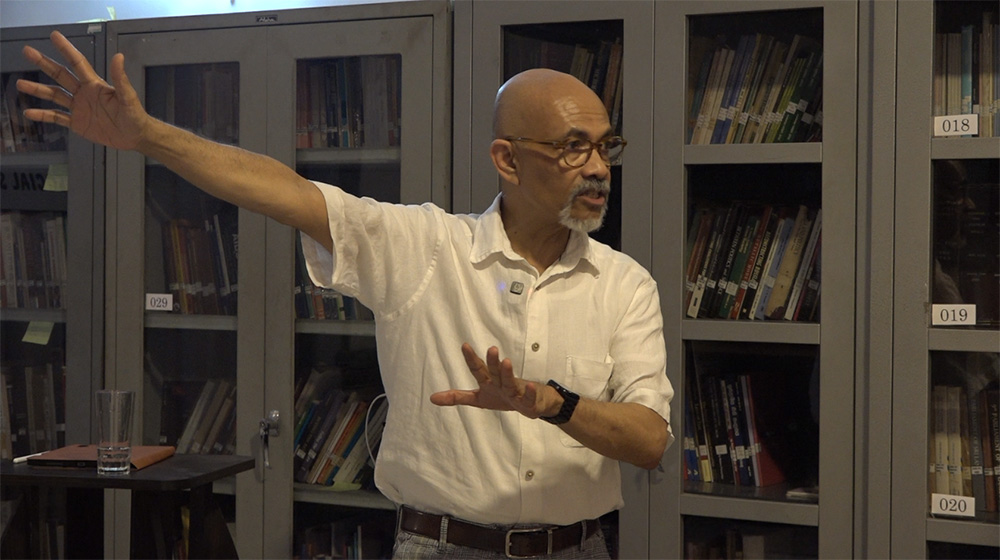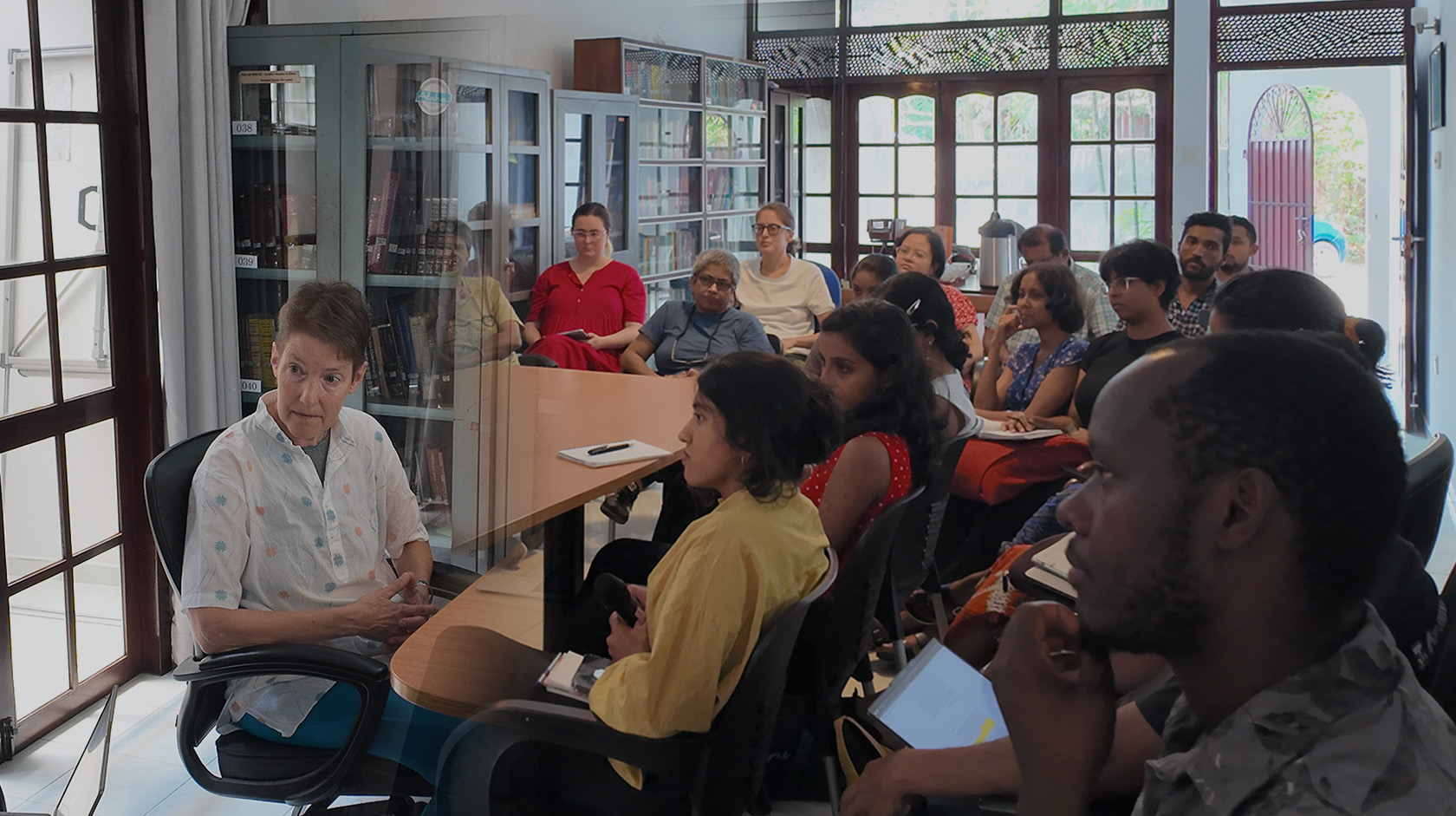Events
Mischief of the Franchise: Suffrage Expansion in the British Empire, Ceylon 1927-1931
Dan Slater
In this talk, Dan Slater discusses his co-authored paper with Iza Ding on the nature of the franchise expansion brought about in Sri Lanka under British colonial rule. He opens the discussion with 2 questions: why and how the British introduced universal suffrage for a non-white colony, and how can we interpret this pivotal moment in history. Slater then presents what and how the Commission came to think of as ‘safeguards’. This brings to light the Commission’s method of gathering hundreds of testimonies and reaching their conclusions through detailed painstaking exchanges with people in Sri Lanka. We learn that Sri Lankans were pivotal in the creation of the electoral reform found in the Donoughmore Constitution, which highlights the expansion of franchise: not as a response to local demands but as a solution to controlling tyranny of the majority. The discussions also highlighted how Sri Lankans were focused on what the seats entailed as opposed to the votes. Franchise itself was not a topic that frequently came up nor was a primary focus, yet new ideas about it did bubble up. Slater highlights how as a result of this, franchise was treated as a solution to controlling the populace and elected officials and despite the conservative approach, it ended up as a progressive result.
German Elections and the Rise of the Far Right in Europe
Britta Petersen
This talk explores the February 2025 German Elections trying to understand the political nuances reflected in the results and how it speaks to a volatile global political climate. Petersen draws a picture of the status of the global political stage vis-à-vis the profound changes creeping up on us. She highlights the decline of western power, the worsening of the climate crisis and the ascent of AI as the backdrop for present developments. Petersen highlights how a deep mistrust has settled into some relevant parts of the electorate, fueled by COVID era conspiracies and fearmongering, making everything else seem better than the bureaucratic status quo. All of this in tandem with the powerlessness, alienation and psychological distress people feel pushes those unable to confront these feelings, to externalise them by identifying a tangible Other to blame for their problems; turning once again towards fascism. Petersen ends by calling for a renewal of the threefold promise of enlightenment (Dialectic of Enlightenment, Max Horkheimer and Theodor Adorno): that is freedom, equality, and brother and sisterhood.
Sex/Work, and the Gendered Division of Labour in Sri Lanka
Themal Ellawala
This talk explores how commercial sex work is valued differently and is negotiated as both productive and reproductive labour. These findings hold implications for the pre-existing theories of gendered labour divisions in Sri Lanka. Through ethnographic fieldwork tracing the work of women, men, queer, and trans sex workers, this talk suggests sex work as a facet in various social binaries – highlighting the relationship between sex work and various aspects of social productivity. He explores the perspectives and concerns of the sex-workers but also of the clients and their respective partners and through this identifies the rifts in the narrative around the role sex-work plays in the division of labour in Sri Lanka. The talk highlights the role sex-work can play within domestic relationships and how it fills gaps that exist whether financially or domestically for the involved parties.
Transnational Foundations: Women Migrant Domestic Workers Building ‘Modern’ Homes and Challenging Gender and Social Hierarchies in Nelibewa, Sri Lanka
Kaushalya Herath
Transnational Foundations: Women Migrant Domestic Workers Building ‘Modern’ Homes and Challenging Gender and Social Hierarchies in Nelibewa, Sri Lanka by Kaushalya Herath contributes to and highlights accounts of women’s experiences and perspectives often overlooked in rural progress.
Nelibewa, which is a village in the ‘periphery’, found itself being modernized through the women in its community seizing opportunities in migration and labour. Herath highlights that these women, while not overtly resistive of patriarchy, reshape gender norms and spaces within their community structure.
She presents this development in contrast to the carefully planned development often found in locales like this. Modernisation in this community was not imposed from the top-down but was a quiet and powerful reordering of life through kitchens, remittances and verandas.
Post-Work Lives of Global Factory Workers in Sri Lanka, India and Bangladesh
Dr Sandya Hewamanne
The Social Scientists’ Association (SSA) hosted a talk by Dr. Sandya Hewamanne, Professor of Anthropology in the Department of Sociology at the University of Essex England on the topic, “Post-Work Lives of Global Factory Workers in Sri Lanka, India and Bangladesh” on 1st of April 2025. Dr. Hewamanne’s lecture focused on the difficulties and complexities surrounding the post-work lives of the women factory workers in Sri Lanka, India and Bangladesh. Dr. Hewamanne identifies various factors like the pervasive impact of neoliberalism in both rural and urban regions and the positivist narratives about microfinance, that influence the decisions made by former factory workers. Key factors such as literacy rates, religion and the social/familial dynamics within countries and cultural contexts impact the quality of life and livelihoods of women. This session was followed by a Q&A session.
Micro-Accountability and Bio-Politics (Foucault) in the Gig Economy: Revisiting Disciplinary Perspectives in the Neoliberal Era
Danture Wickramasinghe
The Social Scientists’ Association (SSA) hosted a talk by Professor Danture Wickramasinghe, Chair in Management Accounting at the University of Glasgow on the topic, “Micro-Accountability and Bio-Politics (Foucault) in the Gig Economy: Revisiting Disciplinary Perspectives in the Neoliberal Era” on the 20th of March 2025. Participants ranging from university students to young activists and academics were engaged in a discussion on the various nuances within the Gig Economy and how neoliberal economies have given the impression of empowerment to the individual while placing them under Panopticon-like levels of control using algorithms and digital platforms. Professor Wickramasinghe highlights how gig platforms create a race to the bottom; cascading down to the people at the grassroot level creating a platform for micro-accountability. He explains how exploitative capitalism is recreated in this economy by making workers vulnerable to precarity and low wages. Professor Wickramasinghe’s presentation was followed by a Q&A session with the session’s participants
Bequeathing A World: Ecological Inheritance, Generational Conflict, and Dispossession
Kath Weston – Reading Group
The Social Scientists’ Association (SSA) hosted an informal reading-group discussion with Professor Kath Weston (Anthropology, University of Virginia) on her 2022 article, “Bequeathing A World: Ecological Inheritance, Generational Conflict, and Dispossession” on the 5th of February 2025. Participants ranging from university students to young activists and academics engaged in a fruitful discussion on inter-generational conflicts surrounding the climate crisis and shared ideas on how to navigate these emerging tensions on the issue of climate change.
Explaining China’s Approach to the Global Governance of Sovereign Debt Distress
Shahar Hameiri
The global governance of sovereign debt distress is widely understood to be threatened by China. Yet, China has proposed no alternative to the existing regime and has participated in Group of 20 frameworks drawing on Paris Club rules. This talk explains China’s behaviour as stemming from the Chinese party-state’s fragmentation, allowing China’s lenders to safeguard their interests, at the expense of other creditors and Beijing’s wider geopolitical interests.

